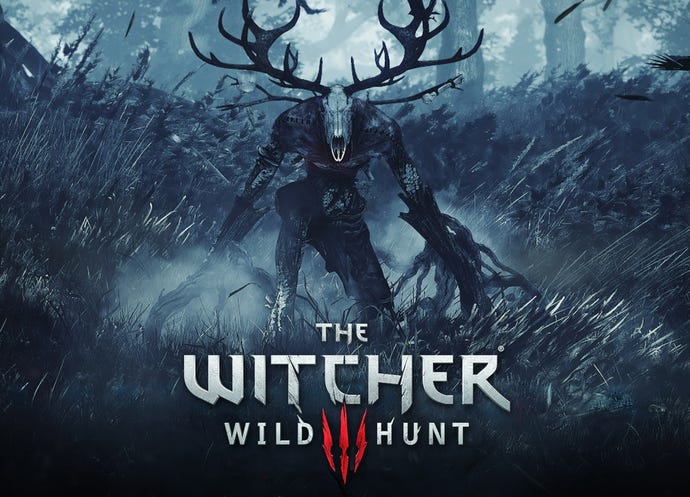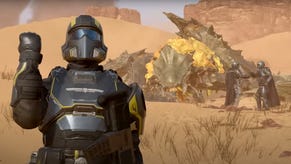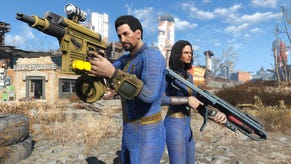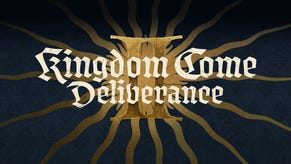What The Witcher 3: Wild Hunt can learn from its predecessors
CD Projekt's latest looks to be the best in The Witcher series, but while we wait for its February release, let's take a trip back to the first two games to see what Wild Hunt can improve on.
"The cumbersome aspect to the combat was fixed for the sequel. With The Witcher 2, the developers took a page out of the action genre and added fast-paced combat."
I love The Witcher and The Witcher 2: Assassins of Kings. It should be no surprise then that The Witcher 3: Wild Hunt one of my most anticipated games in years.
But just because I am a huge fan, it doesn't mean I can't see past some of the flaws in the original Witcher or its sequel. Nor does this mean I cannot hope for the third outing to be a mesh between the two previous entries. Here then, is what I hope will be included and excluded in what CD Projekt RED states will be Geralt's last hurrah in The Witcher game franchise.
Killing in the name of
In the first game the combat is a little clunky. Granted, combat in real life is neither fast nor fluid and you sure as hell aren't as nimble as a Cirque du Soleil acrobat. In a sense, it was rather authentic as Geralt's sword swings and blocks seemed to take effort.
While your skills progressed as the game wore on, I did find it to be a bit of a click-fest as I constantly clicked on enemies to perform a specified set of attacks, and then clicked some more until I'd performed all manner of moves. It wasn't as mundane as many would have you believe, so while it felt labored at times, it was far from boring. Combat made you think tactically: Which stance will I use? What type of blade will kill this monster? What oil should I put on the blade? What about magic? There were many ways in which to build Geralt into a lean, mean monster-killing machine.
The cumbersome aspect to the combat, however, was fixed in the second outing. With The Witcher 2, the developers took a page out of the action genre and added a fast-paced, fluid, and melee-oriented style of combat to Geralt's moves. This was not only refreshing, but the addition of bombs and traps where as well. In the first Witcher game you were limited to swords, axes, maces and all manner of steel or silver weaponry. The Witcher 2 made sure you had your wits about you when it came to defeating a monster, and Geralt was much more mobile this time around. The only thing he couldn’t do any longer was block and parry in the same capacity. Sure, he could roll around on the ground, but using that as a defensive move got old for me really fast.
What I would like to see incorporated into The Witcher 3 is a combination of the two combat styles: keep it fast and fluid; bring back stances that matter; allow Geralt to parry and block properly with swords; and allow stats to play a larger role in how we battle our enemies. Don't take away the tactical aspect, but still give us various options in which to approach a battle.
Quests, quests, quests
Both Witcher games have moral consequences regarding decisions made when accepting a quest. For me, decisions I made or quests I took in the first game seemed to matter more, especially when it came to side-questing. When any decision was made, large or small, the consequences of your actions were made known along with the ability to see what would have happened had you chosen a different path. This was not the case in the sequel. Yes, your decisions mattered to the world as a whole, but not when it came to the little things. In The Witcher, someone you decide not to kill could lend you aid further into the game, while in the sequel, the NPCs wouldn't play as large a role. Basically, quests in the first game seemed to all tie together somehow, but in The Witcher 2 they didn't.
"Decisions I made or quests I took in the first game seemed to matter more, especially when it came to side-questing."
I'm not saying the path you took in The Witcher 2 didn't matter, I just felt there were more decisions to be made for good or ill in the first game. It felt slightly linear but at the same time it provided you with more replay value.
In short, I would like to see quests – great and small – in Wild Hunt extend over into the main game, to cause a ripple effect. The bug you decide to squash in Quest A may mean that come Quest Y a little girl won't help sneak you into the castle because you killed her pet bug. This would cause you to have to go clear across the game map to find someone who may or may not sneak you in, and if not, you will just have to run in with sword in hand and slaughter the entire place. Which will also have major consequences.
I would also like quests in The Witcher 3 to be more similar to The Witcher than Assassins of Kings. In the first game, it took much longer to get to your objective than in the second. With Witcher 2, when given a quest, it was never far away. And if there was a chain involved? You just went around the next corner.
I want to be able to travel further than 'up the road a ways' for quests again. Not all need to incorporate traversing the entire map, but it would be nice to go off the beaten path once more and have many dangers present themselves along the way – without all the constant respawning. I don't want to have to kill every monster in my path through a forest, get to my quest objective, only to have to go back through the forest and fight the exact same monsters again. Take a page out of Skyrim's book: once an area is cleared, it's cleared – but only for so long.
This leads me to my next point, and which may be the reason why quests didn't seem as dynamic in the second outing.
On to size, length, and a bloody good drink...
Size matters (yes, fellas. It does)
The Witcher 2: Assassins of Kings was drop-dead gorgeous. The world is alive, rich with flora and fauna, and the cities are populated without looking as though the same cookie cutters were used. I cannot stress how much I enjoyed the world in The Witcher 2. That being said, while I know it had a larger map, it just didn't feel big. Let me explain what I mean by this as it doesn't make much sense.
"The Witcher felt much larger than its sequel because it provided the player with more opportunities for exploration in a confined area."
The Witcher felt much larger than its sequel because it provided the player with more opportunities for exploration in a confined area. It had character too. There were so many different regions in the second one it just didn't seem like I was in any long enough. There was the Northern and Minor Kingdoms as well as the principalities, but there were more places to go in the first game despite staying in or around Vizima. You were not free to run around the place, and there wasn't any fast way to travel large distances (other than teleporting once you hit Chapter 3). You had to explore. You had run to around. And that was great because there were more chances for loot, and more women to be seduced by.
Considering the map in The Witcher 3 is supposedly the biggest in the series, I hope the sense of wonder and exploration felt in the first outing is mirrored this time out.
Length matters as well
I probably put over 100 hours into the first Witcher game, maybe even more. I know that sounds like overkill to some, but I like to explore and I'm a completionist – just ask anyone who has ever played an MMO with me. With The Witcher 2, my time spent in it was probably around half that. I chalk this up to the differences in the amount of quests and the time spent running between them in the first game.
CD Projekt has said to expect The Witcher 3 to last around the 50 hour mark, which means I will probably spend 100 hours or more in it – which is plenty. If you start hitting around the 200 hour mark, you risk the possibility of boring the player or causing a divorce.
Drinking and forging
The Witcher 2 had some awesome crafting options when it came to armor and weapon creation, and I hope that will return. I would also like to see alchemy once again play a larger role, as it was more robust in the first game, and less important in the second.
"If you start hitting around the 200 hour mark, you risk the possibility of boring the player or causing a divorce."
I'm going to assume in The Witcher 3 that there will still be consequences to your drink of choice. Each one has an effect on you: if it drains your magic, it will restore health; if it provided night vision, it will decrease your melee damage and so on. Potions are a crapshoot so you need to choose wisely.
I know some didn't like the fact you could no longer drink a potion while in battle in The Witcher 2, but I did. Not only was it more realistic, it added an extra, strategic layer to battle preparation. Plus, that is how it worked in the books, you know.
Looking at things from a different perspective
Finally, I want to talk about perspective and ease of use. In The Witcher 3, I would really like it if we could change the point of view.
The Witcher allowed the players to view the game from three angles: high isometric view, low isometric view, and over the shoulder. In The Witcher 2: Assassins of Kings, the only way to change the camera angle was through a mod.
I never felt motion sickness while playing The Witcher, but I had to stop playing the second game after an hour or so each time I fired it up. Otherwise I would have vomited all over my keyboard. I have read of others having the same issue, so thankfully it wasn't just me harboring some weird issue. So, if the developers would please add an option other than a low FOV, I would be forever grateful.
One last thing: I miss the old user interface from the original game.
Yes, I am sure the change in the UI had more to do with The Witcher 2 being made for consoles as well as PC. There is no reason to develop two different interfaces, and it needed to be streamlined for the boxes. Imagine all those bubbles on a console screen. I know that was at least part of the reason.
Also, I preferred the grid-based inventory system in the first one. These used to be a staple in games, and now they are mainly in MMOs. Many RPGs seem to be shying away from this – either that or I am just not playing enough of them anymore. I just like to be able to organize my stuff, ya know?
And so the wait for 2015 begins
Don't think after reading all of my rambling that I am in any way knocking either of these wonderful games. Both are on my all-time favorites list: it's just I prefer some aspects of one over the other. Surely everyone feels this way about sequels in some capacity. I'm very thankful CD Projekt RED decided to share the world Andrzej Sapkowski created in an interactive medium. Geralt is one of my favorite protagonists, and I'm going to miss him once his adventure finishes with The Witcher 3.
I suppose this just means I will have to start reading the books.
The Witcher 3: Wild Hunt will be released on February 24 for PC, PlayStation 4 and Xbox One.














.jpg?width=291&height=164&fit=crop&quality=80&format=jpg&auto=webp)


